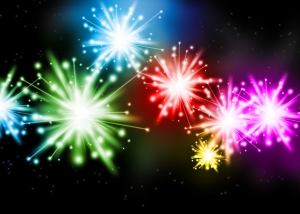Fourth of July Fireworks Safety for Campers
Good morning, campers! On today’s blog we’ll be talking about fireworks safety for your Memorial Day and Fourth of July festivities. Whether you’re tent camping or live the RV life, everyone has to be careful of starting fires in the backcountry. But there are some private camp grounds that provide areas for enjoying fireworks; and even if you’re only pitching a tent in your backyard, there are some things to keep in mind. In the interest of keeping the 4th safe and fun, and helping protect great holiday traditions at the same time, a little reminder on firework safety.
Consider seeing a sponsored fireworks show: The easiest way to ensure firework safety is to go to a fireworks show by a local organization or government. Many cities spend a lot of time and money to ensure their annual displays are spectacular and everything is kept safe. As we mentioned before, there are terrific July 4th displays in Washington D.C., at Mt. Rushmore (usually) and all over the country; but even if you’re from a small town, there’s almost always a local alternative. Pick out some great nearby camp grounds and let the “professionals” handle the explosions.
Select minimally hazardous fireworks: All fire deserves respect, but not all fireworks have to be dangerous. Sparklers, “black snakes” and several other kinds of fireworks are fairly safe if handled properly – but they still have to be treated with caution by responsible adults. The further your fireworks travel, and the more sparks they throw off, the more dangerous they are. A big part of selecting fireworks is making sure they’re considered legal and safe; don’t patronize shady roadside stands or take a seller’s word for it.
Make sure you’re in the right area: There are public parks and other spaces where certain areas may be designated for fireworks. This is also true of some private camp grounds. Follow all the guidelines, and call ahead to discuss your plans. Many, but not all campsites, will not permit use of any fireworks at all – for example, most national parks allow no fire in the backcountry, and in some cases campfires can only be made in raised, “safe” fire rings at certain developed sites.
Be careful of “wildfire fuel”: There are lots of factors that can aggravate the likelihood of a fire. If it’s been particularly dry season, the risk of fire goes way up. Always ensure that matches, lighters, and other sources and fuels for fire are kept under control, and embers are stamped out. Be careful of litter and waste that might serve to turn a spark into a fire. As in any camping situation, your goal is to “leave no trace.”
To introduce the topic of fire safety to your kids, don’t forget good old Smokey the Bear, who recently celebrated his 65th birthday.


